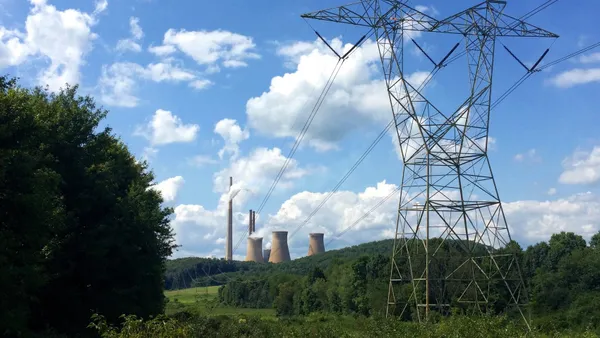Dive Brief:
- The United States will reveal its decarbonization strategy at a United Nations climate summit in Morocco next month, and the lead negotiator says carbon capture and natural gas will play a role for years to come, Bloomberg BNA reports.
- U.S. Special Envoy for Climate Change Jonathan Pershing said at a conference recently that as far out as 2050, natural gas generation and carbon capture on those plants would remain a part of the strategy alongside renewable energy.
- At the Paris climate negotiations last year, almost 200 nations agreed to keep the impact of climate change below 2 degrees Celsius. For the United States, that will mean cutting emissions 26% by 2025.
Dive Insight:
The next United Nations climate conference kicks off Nov. 7 in Marrakech, Morocco, and the very next day voters in the United States will head to the polls. The date coincides with U.S. presidential elections, which will reveal the nation's future decarbonization strategy under the new President.
Bloomberg BNA reports on a speech climate negotiator Pershing gave at the Atlantic Council’s Global Energy Center, where he revealed some insights into what the U.S. plan entails. While renewables are a big part, natural gas supporters have much to feel good about.
“If I look out to 2050, gas is going to have to also be captured and stored,” Pershing said. “So to me it’s not a question of whether gas is good but if the carbon is good. To me, capture and storage becomes an essential technology."
While Pershing noted the declining cost of renewables, he also pointed to historically-low gas priced, saying, "there’s no way in which we could be down as far as we are without gas in the mix."
The Paris climate accord will go into force next month, following ratification by dozens of countries. The United States ratified the agreement last month. But while Democratic nominee Hillary Clinton is more supportive of renewables, her challenger Trump has vowed to bring back the fossil fuels industry while calling climate change a Chinese hoax to undermine U.S. manufacturing. All of this is occurring as the Clean Power Plan—the engine behind the United States Paris commitments—is under fire in the courts.
The White House's signature climate initiative, the Clean Power Plan, is targeting a 32% reduction in carbon emissions from the power sector nationwide by 2030, but the U.S. Supreme Court has delayed the rule's implementation.














